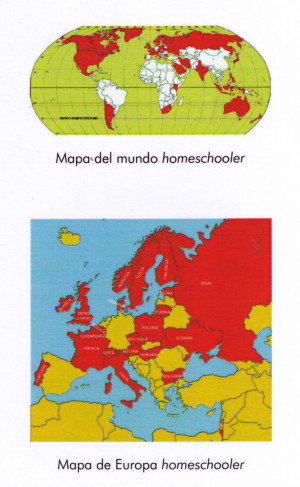Valedictorian Says Goodbye to Standardized Schooling
 Wednesday, July 21, 2010 at 9:59AM
Wednesday, July 21, 2010 at 9:59AM A month ago I spoke at the AERO conference in Albany, NY and I spent some of my time with my friend John Gatto. It is always stimulating to hear John's thoughts however, despite John's fame and following, I often get the feeling at events like this that we're preaching to the choir and that those who are in a position to make, or at least serioiusly support, the changes being presented at alternative education events never attend or simply dismiss such educators as nuisance outliers. For instance, I met a superintendent from Michigan who not only sponsored a talk by Gatto at his school, but tried to implement some of John's ideas in his district. The superintendent nearly lost his job in the ensuing brouhaha, as Gatto's comments and ideas upset more parents, teachers and administrators than excited them about making changes to their school.
So I was pretty amazed to read the following in a high school valedictory speech, given by Erica Goldson at the Coxsackie-Athens High School (NY) graduation ceremony. Ms. Goldson is clearly influenced by the work of Gatto and other education outliers, giving me hope that the message of self-determination and social consciousness that is embedded in those writings are actually being heard beyond the small alternative schooling community. As John Holt noted in the first issue of Growing Without Schooling magazine (August, 1977): "We who do not believe in compulsory schooling, who believe that children want to learn about the world, are good at it, and can be trusted to do it without much coercion or interference, are surely not more than 1% of the population and perhaps much less than that... This does not trouble me any more, as long as those minorities of which I am a member go on growing." Ms. Goldson provides evidence that our numbers are slowly growing beyond our homeschooling/alternative schooling enclaves. Here is an excerpt from her speech that I hope you'll enjoy.
Some of you may be thinking, "Well, if you pass a test, or become valedictorian, didn't you learn something? Well, yes, you learned something, but not all that you could have. Perhaps, you only learned how to memorize names, places, and dates to later on forget in order to clear your mind for the next test. School is not all that it can be. Right now, it is a place for most people to determine that their goal is to get out as soon as possible.
I am now accomplishing that goal. I am graduating. I should look at this as a positive experience, especially being at the top of my class. However, in retrospect, I cannot say that I am any more intelligent than my peers. I can attest that I am only the best at doing what I am told and working the system. Yet, here I stand, and I am supposed to be proud that I have completed this period of indoctrination. I will leave in the fall to go on to the next phase expected of me, in order to receive a paper document that certifies that I am capable of work. But I contest that I am a human being, a thinker, an adventurer - not a worker. A worker is someone who is trapped within repetition - a slave of the system set up before him. But now, I have successfully shown that I was the best slave. I did what I was told to the extreme. While others sat in class and doodled to later become great artists, I sat in class to take notes and become a great test-taker. While others would come to class without their homework done because they were reading about an interest of theirs, I never missed an assignment. While others were creating music and writing lyrics, I decided to do extra credit, even though I never needed it. So, I wonder, why did I even want this position? Sure, I earned it, but what will come of it? When I leave educational institutionalism, will I be successful or forever lost? I have no clue about what I want to do with my life; I have no interests because I saw every subject of study as work, and I excelled at every subject just for the purpose of excelling, not learning.
John Taylor Gatto, a retired school teacher and activist critical of compulsory schooling, asserts, "We could encourage the best qualities of youthfulness - curiosity, adventure, resilience, the capacity for surprising insight simply by being more flexible about time, texts, and tests, by introducing kids into truly competent adults, and by giving each student what autonomy he or she needs in order to take a risk every now and then. But we don't do that." Between these cinderblock walls, we are all expected to be the same. We are trained to ace every standardized test, and those who deviate and see light through a different lens are worthless to the scheme of public education, and therefore viewed with contempt.
H. L. Mencken wrote in The American Mercury for April 1924 that "the aim of public education is not to fill the young of the species with knowledge and awaken their intelligence. ... Nothing could be further from the truth. The aim ... is simply to reduce as many individuals as possible to the same safe level, to breed and train a standardized citizenry, to put down dissent and originality. That is its aim in the United States." (Gatto)


